The Gut-Brain Axis and BDD: Why Probiotics Might Matter
Introduction
If you live with Body Dysmorphic Disorder (BDD), you probably know how powerful your mind can be — the way it can distort how you see yourself, replay painful thoughts, and flood you with anxiety over small details. But what if part of that mental chaos doesn’t start in your brain at all… but in your gut?
Emerging research in neuroscience and psychiatry is revealing that our digestive system and our brain are in constant conversation — through what’s known as the gut-brain axis. This two-way communication network links the emotional and cognitive centers of the brain with the intestinal tract through hormones, nerves, and immune signals.
And here’s the fascinating part: imbalances in gut bacteria can influence mood, anxiety, and perception, all of which play major roles in BDD.
In this article, we’ll explore how gut health affects body image, stress hormones, and neurotransmitters — and how probiotics, prebiotics, and mindful nutrition may help stabilize your mental and emotional landscape 🌿.
Looking for supplements for This? Click here.
The Hidden Connection Between the Gut and the Mind 🌐
The gut and brain are deeply intertwined through what scientists call the microbiota–gut–brain axis.
Your gut contains over 100 trillion microorganisms, collectively known as the microbiome. These bacteria, fungi, and microbes don’t just digest food — they also produce neurotransmitters, regulate inflammation, and send chemical messages directly to your brain via the vagus nerve.
This means your gut acts almost like a “second brain.” When it’s balanced, it produces serotonin, dopamine, and GABA — the same neurotransmitters that support calm, confidence, and emotional regulation.
When it’s imbalanced (a condition known as dysbiosis), inflammatory molecules can cross into the bloodstream and affect your brain’s chemistry — leading to anxiety, fatigue, and distorted thinking.
That gut-level disturbance can make BDD symptoms worse by amplifying stress, body-focused obsessions, and emotional instability.
How the Gut-Brain Axis Shapes Perception and Emotion 🧩
It might sound surprising that digestion could affect how you see yourself in the mirror — but perception is not purely visual. It’s emotional and chemical.
When the gut is inflamed or out of balance, it releases cytokines — immune signals that tell the brain there’s danger. The brain, interpreting this as a stress signal, increases cortisol production.
High cortisol narrows perception, making the mind more prone to hyper-focusing on threats — including perceived body flaws.
At the same time, gut dysbiosis decreases serotonin, which plays a key role in sensory integration. Low serotonin means the brain struggles to interpret visual and emotional information accurately, leading to distorted self-image and obsessive self-analysis.
In short, a chaotic gut sends chaotic messages to the brain.
Serotonin: The Gut’s Role in Emotional Balance 🌸

Serotonin is one of the most important neurotransmitters involved in BDD — regulating anxiety, impulse control, and self-perception.
What’s surprising is that about 90% of serotonin is produced in the gut, not the brain. Specialized gut cells called enterochromaffin cells create serotonin in response to bacterial activity.
When gut bacteria are healthy, serotonin production flows smoothly, supporting calmness and emotional balance.
When the microbiome is imbalanced, serotonin levels fluctuate wildly — leading to anxiety spikes, intrusive thoughts, and obsessive-compulsive tendencies.
This helps explain why digestive issues (bloating, IBS, food sensitivities) often go hand-in-hand with mood disorders and body dysmorphia. The gut is essentially the emotional foundation of the nervous system.
Inflammation: The Invisible Agitator 🔥
Chronic gut inflammation is one of the most underrecognized drivers of mental fog, anxiety, and emotional dysregulation.
When the gut lining becomes permeable (a condition known as leaky gut), tiny molecules of undigested food and bacteria enter the bloodstream, triggering immune activation.
This inflammation reaches the brain — a phenomenon called neuroinflammation — which can alter mood and cognition.
In people with BDD, this inflammatory state worsens intrusive thoughts, sleep problems, and cortisol surges. It’s like living with an overactive alarm system that never turns off.
The solution isn’t just to calm the mind, but to calm the body — starting with the gut.
The Role of the Vagus Nerve: The Body’s Communication Superhighway 🌬️
The vagus nerve connects your gut to your brainstem, carrying signals both ways.
When the vagus nerve is activated (through deep breathing, calm digestion, or positive emotional states), it promotes rest, digestion, and repair.
But when chronic stress or poor diet weakens vagal tone, communication breaks down. The brain sends stress signals to the gut, the gut responds with inflammation, and the loop feeds itself.
This is why gut health is inseparable from nervous system regulation. Every probiotic, every breath, every mindful meal communicates safety to your brain through this powerful nerve.
Gut Dysbiosis and Cortisol: The Stress Feedback Loop 🌡️
High cortisol damages the gut lining, reduces beneficial bacteria, and increases gut permeability.
In turn, a damaged gut releases inflammatory compounds that tell the brain to produce even more cortisol.
It’s a vicious loop: stress damages the gut, and gut damage increases stress.
For people with BDD, this means emotional flare-ups, obsessive thinking, and fatigue can often trace back to gut dysfunction.
Balancing gut bacteria breaks this loop by lowering inflammation, stabilizing serotonin, and signaling the brain that it’s safe to relax.
Probiotics: The Brain-Calming Bacteria 🌿🦠
Probiotics are live microorganisms that restore balance to the gut microbiome. When taken consistently, they can enhance serotonin production, reduce inflammation, and support emotional regulation.
Research shows that specific probiotic strains — often called psychobiotics — directly influence mental health.
These bacteria don’t just improve digestion; they literally communicate with your brain.
They send neuroactive compounds like serotonin precursors, short-chain fatty acids, and anti-inflammatory molecules through the vagus nerve, modulating mood and stress.
The Best Probiotic Strains for Mental Health and BDD 💚
While not all probiotics affect the brain, some strains have been shown to specifically support emotional and cognitive balance.
Lactobacillus rhamnosus (JB-1) — reduces cortisol, promotes GABA activity, and supports calm focus.
Bifidobacterium longum (1714) — helps regulate anxiety and stress response.
Lactobacillus helveticus R0052 + Bifidobacterium longum R0175 — a well-studied combination that improves mood and reduces tension.
Lactobacillus plantarum — supports serotonin production and helps with brain fog and fatigue.
These strains are often referred to as psychobiotics — probiotics that directly influence the brain through neurochemical and hormonal pathways.
Prebiotics: Feeding the Good Guys 🥦
If probiotics are the “seeds,” prebiotics are the fertilizer.
Prebiotics are fibers found in foods like garlic, onions, bananas, and oats that feed beneficial gut bacteria.
When these bacteria digest prebiotics, they produce short-chain fatty acids (SCFAs) like butyrate, which lower inflammation and nourish the gut lining.
Butyrate also influences brain function by supporting the blood-brain barrier and promoting BDNF (brain-derived neurotrophic factor) — a key molecule for learning, memory, and mood regulation.
This is another way gut health supports clear thinking and emotional resilience in BDD.
Nootropic Effects of a Healthy Microbiome 🧠
A balanced microbiome functions almost like a natural nootropic.
It improves mental sharpness by increasing acetylcholine (the focus neurotransmitter), reducing brain inflammation, and supporting mitochondrial energy in neurons.
When your gut flora is balanced, your thoughts become more fluid, your emotions more stable, and your reactions less extreme.
This internal calm allows therapy and mindfulness practices to work more effectively — because your brain finally has the biochemical foundation for clarity.
How Gut Health Affects Self-Perception 🪞
The connection between gut health and BDD isn’t only biochemical — it’s perceptual.
Studies suggest that gut inflammation and serotonin imbalances can alter interoception, the ability to sense what’s happening inside your body.
When interoception is off, your sense of self becomes disjointed — your body feels unfamiliar, and your brain struggles to interpret internal signals correctly.
For someone with BDD, this can deepen the feeling of “wrongness” about their body.
Restoring gut balance improves interoception, helping you reconnect with your body as a living, sensing organism — not an object to critique.
Supporting the Gut-Brain Axis Naturally 🌱
Improving gut health doesn’t require perfection — just consistency.
Start with gentle, sustainable habits that communicate safety to your digestive and nervous systems:
Eat slowly and chew thoroughly.
Reduce processed foods, refined sugar, and alcohol, which inflame the gut.
Prioritize whole foods rich in fiber, omega-3s, and antioxidants.
Add fermented foods like kefir, yogurt, sauerkraut, or kimchi.
Stay hydrated — dehydration slows digestion and increases cortisol.
Practice diaphragmatic breathing before meals to activate the vagus nerve.
Each meal can become a message to your brain: you are safe now.
Supplements That Support the Gut-Brain Axis 💊
Probiotic Blends
Choose multi-strain formulas with Lactobacillus and Bifidobacterium species shown to affect mood.
Prebiotic Fiber
Look for inulin or galactooligosaccharides (GOS) to nourish beneficial bacteria.
Omega-3 Fatty Acids
Reduce gut inflammation and improve serotonin signaling.
L-Glutamine
Supports the integrity of the gut lining and reduces leaky gut.
Magnesium
Calms the nervous system and promotes healthy bowel function.
Curcumin
A natural anti-inflammatory compound from turmeric that supports both gut and brain.
Together, these nutrients create the biological conditions for mental clarity and emotional stability.
Looking for supplements for This? Click here.
The Role of Therapy in Gut-Brain Healing 💬
While probiotics and diet support biology, therapy supports meaning.
Trauma, shame, and perfectionism — all of which contribute to BDD — also impact digestion through chronic stress.
When you feel emotionally unsafe, your gut tightens. Digestion slows. The microbiome shifts toward inflammatory bacteria.
This is why somatic or body-focused therapies like EMDR, somatic experiencing, or mindfulness-based stress reduction can enhance gut health indirectly — by lowering cortisol and restoring parasympathetic tone.
Your gut heals when your body feels safe.
Looking for online therapy ? Click Here.
The Future of Psychobiotics 🧪
Researchers are now exploring “psychobiotic therapy” — using specific probiotics and prebiotics as adjuncts to mental health treatment.
Early studies show that balancing gut flora can improve response to antidepressants, reduce anxiety, and enhance cognitive flexibility.
For people with BDD, this opens an exciting new frontier: healing the biochemical terrain beneath distorted self-image, rather than just the thoughts themselves.
It’s not about replacing therapy, but enriching it from the inside out.
Healing Is an Inside Job 🌸
If you’ve struggled with body dysmorphia, you know how consuming it can be — the way it turns your reflection into an adversary.
But healing begins in small, internal shifts.
Balancing your gut might not seem related to body image at first, but it’s deeply connected. When your nervous system feels nourished, your brain perceives more accurately. When inflammation decreases, emotional storms quiet. When serotonin flows smoothly, peace becomes possible.
Your gut and brain are on the same team — both working to help you feel safe, grounded, and whole again.
Final Thought 🌿
The gut-brain axis reminds us that mental health is not separate from physical health. Every bite, every breath, and every act of self-care is a dialogue with your nervous system.
When you tend to your gut, you’re not just supporting digestion — you’re rebuilding the biochemical foundation for self-acceptance.
And slowly, as balance returns, the mirror becomes less threatening, and the world — both inside and out — starts to look a little clearer 🌞.
References
Cryan, J. F., & Dinan, T. G. (2012). “Mind-altering microorganisms: The impact of the gut microbiota on brain and behavior.” Nature Reviews Neuroscience, 13(10): 701–712.
Foster, J. A., & McVey Neufeld, K. A. (2013). “Gut–brain axis: How the microbiome influences anxiety and depression.” Trends in Neurosciences, 36(5): 305–312.
Mayer, E. A. (2011). “Gut feelings: The emerging biology of gut–brain communication.” Nature Reviews Neuroscience, 12(8): 453–466.
Collins, S. M., Surette, M., & Bercik, P. (2012). “The interplay between the intestinal microbiota and the brain.” Nature Reviews Microbiology, 10(11): 735–742.
Tillisch, K., et al. (2013). “Consumption of fermented milk product with probiotic modulates brain activity.” Gastroenterology, 144(7): 1394–1401.
Sarkar, A., et al. (2016). “Psychobiotics and the manipulation of bacteria–gut–brain signals.” Trends in Neurosciences, 39(11): 763–781.
Dinan, T. G., Stanton, C., & Cryan, J. F. (2013). “Psychobiotics: A novel class of psychotropic.” Biological Psychiatry, 74(10): 720–726.
Allen, A. P., et al. (2017). “Bifidobacteria and emotion regulation: The emerging science of gut-brain balance.” Current Opinion in Behavioral Sciences, 17: 89–95.
Kennedy, D. O. (2016). Cognitive Nutrition and the Gut-Brain Axis. Frontiers in Neuroscience, 10: 23.
van der Kolk, B. A. (2014). The Body Keeps the Score. Viking.
Related Posts
-

Why Co-Dependency Feels Draining: Adrenal Fatigue and Supplements That Help
The adrenal glands are small but powerful organs that sit above your kidneys, acting as your body’s built-in stress managers. They produce hormones like cortisol and adrenaline that help regulate energy, mood, and resilience. When they’re overworked from chronic stress or emotional exhaustion, fatigue and imbalance follow. Supporting adrenal health naturally can help restore calm, energy, and hormonal balance. 🌿⚡
-

The Link Between Anxiety, Co-Dependency, and Natural Support
Anxiety feels like living in constant alert mode—your heart races, your thoughts loop, and your body can’t find peace. It’s the nervous system’s way of preparing for danger, even when none exists. Understanding what’s happening in your mind and body is the first step toward calming the storm and restoring balance. 🌿💫
-

Supplements That Support Dopamine and Serotonin in Co-Dependent Patterns
Serotonin is the neurotransmitter of calm, confidence, and contentment. When it’s balanced, you feel peaceful and emotionally grounded. When it’s low, anxiety, mood swings, and emotional dependence take over. By understanding serotonin’s role in emotional health—and how to support it naturally—you can rebuild inner stability, improve relationships, and cultivate lasting happiness from within. 🌞💫
-

How Emotional Exhaustion in Codependency Impacts the Nervous System
The nervous system is the body’s communication network, connecting the brain to every organ and muscle. It regulates stress, mood, and emotion through a delicate balance of electrical and chemical signals. When overwhelmed, it can become dysregulated—leading to fatigue, anxiety, and emotional imbalance. Understanding how to calm and strengthen the nervous system is key to healing from chronic stress and emotional burnout. ⚡🌿
-

What Is Co-Dependency? The Role of Brain Chemistry and Stress
Stress is more than a feeling—it’s a full-body experience that begins in the brain and ripples through every cell. When cortisol surges and the nervous system stays on alert, your body can’t rest or recover. Over time, this constant tension affects energy, focus, mood, and even immune health. Understanding stress chemistry is the first step toward breaking free from burnout and finding calm again. 🌿
-

Creating a Supplement Stack for Motivation, Energy, and Anti-Procrastination
Motivation is the fuel behind every meaningful achievement—but it’s not just about willpower. It’s a mix of mindset, brain chemistry, and momentum. When energy, focus, and purpose align, action feels natural instead of forced. Learn how to harness motivation as a daily state, not a fleeting feeling.
-

Supplements for Building Consistency and Reducing Chronic Procrastination
Biochemistry is the bridge between biology and chemistry—the science of life at the molecular level. It explains how nutrients, hormones, and neurotransmitters interact to create energy, thought, and emotion. From brain function to muscle movement, biochemistry reveals the invisible processes that sustain health, balance, and vitality.
-

GABA and Procrastination: Supporting Calm Focus for Productivity
GABA is the brain’s natural calming messenger—a neurotransmitter that helps slow mental overactivity and ease stress. When GABA levels drop, focus fades, anxiety rises, and procrastination becomes more likely. By supporting GABA through nutrition, lifestyle, and supplements, you can restore calm clarity, improve focus, and take action with steady, balanced energy.
-

Ashwagandha and Procrastination: Lowering Stress to Improve Action
Science is the language of curiosity and discovery. It helps us understand the hidden patterns behind life, energy, and the universe. Through experimentation and critical thinking, science connects imagination to evidence—turning questions into knowledge. Whether through microscopes, molecules, or minds at work, science represents our endless pursuit of truth and innovation.
-

Neurotransmitters and Motivation: Supplements That Support Drive and Focus
Supplements can do more than boost physical health—they can also enhance mental clarity, focus, and motivation. Nutrients like omega-3s, magnesium, B vitamins, and adaptogens help balance neurotransmitters, stabilize mood, and support brain energy. When combined with good sleep, nutrition, and mindful habits, they can transform how your brain performs under stress.
-

How Stress Hormones Like Cortisol Fuel Procrastination (and What Helps)
Blood sugar isn’t just about physical health—it directly impacts focus, mood, and motivation. When glucose levels spike and crash, energy and attention do the same, fueling procrastination and brain fog. Learning how to stabilize blood sugar through balanced meals, mindful habits, and key nutrients helps keep your mind steady, focused, and ready to act.
-

Brain Fog and Procrastination: Supplements for Mental Clarity
Brain fog can turn even simple tasks into mental hurdles. When your thoughts feel slow and unclear, procrastination often follows—making focus and productivity seem impossible. This article explores the biochemical and lifestyle causes of brain fog and reveals the most effective supplements for restoring mental clarity, focus, and sustained energy.
-

The Link Between Low Energy and Procrastination: Can Supplements Help?
Neurochemistry shapes how we think, feel, and act. When neurotransmitters like dopamine, serotonin, and GABA fall out of balance, it can lead to fatigue, anxiety, or lack of motivation—fueling procrastination and low mood. Understanding the brain’s chemical communication system helps us find ways to restore focus, calm, and emotional stability through nutrition, mindfulness, and targeted supplements.
-

Why Do We Procrastinate? The Role of Dopamine and Supplements That Support It
Dopamine is the brain’s motivation messenger—the chemical that fuels focus, reward, and drive. When dopamine levels drop, even simple tasks can feel impossible to start. This article explores how dopamine shapes procrastination, motivation, and mental energy, along with natural supplements and daily habits that help restore balance and get things done.
-

Phosphatidylserine and Stress Reduction for People with BDD
Stress is more than a mental state—it’s a full-body experience that affects hormones, brain chemistry, and emotional balance. For people with Body Dysmorphic Disorder (BDD), constant tension and worry about appearance can overload the nervous system. Learning how stress works and finding ways to calm it is key to breaking the cycle of anxiety and self-criticism.
-

How Antioxidants Like Vitamin C & E Support Mental Health in BDD
Antioxidants are the body’s natural defense against stress and inflammation. For people with Body Dysmorphic Disorder (BDD), oxidative stress can worsen fatigue, anxiety, and emotional imbalance. Nutrients like Vitamin C and E help protect brain cells, boost neurotransmitter function, and support a calmer, clearer mindset—building a stronger foundation for recovery.
-

Ginkgo Biloba and Memory Support for BDD Recovery
Emotional regulation is the foundation of healing from Body Dysmorphic Disorder (BDD). When the nervous system stays in constant overdrive, even small stressors can trigger self-critical spirals. Learning to calm emotional reactivity helps restore clarity, confidence, and a sense of inner balance. By blending mindfulness, nervous system support, and self-compassion, you can retrain your brain to respond—not react—to emotion.
-

Alpha GPC and Cognitive Function in Body Dysmorphic Disorder
Mental fatigue can feel like your brain has hit a wall—thoughts slow down, focus fades, and motivation disappears. For people with Body Dysmorphic Disorder (BDD), chronic overthinking, emotional stress, and constant self-evaluation can deplete mental energy even further. Understanding what causes this cognitive exhaustion is the first step toward recovery—through rest, balanced nutrition, and targeted brain-supporting supplements.
-

N-Acetyl L-Tyrosine and BDD: Supporting Mental Clarity
Chronic stress doesn’t just affect your mood—it reshapes your brain chemistry, weakens focus, and fuels the obsessive thought loops common in Body Dysmorphic Disorder (BDD). Over time, constant cortisol elevation drains mental energy and emotional balance. Learning to recognize and manage chronic stress is essential to restoring mental clarity, self-compassion, and resilience.
-

Chamomile and Lavender for Calming Obsessive Body Image Thoughts
The nervous system is the command center of our emotional and physical world—and in Body Dysmorphic Disorder (BDD), it often operates in overdrive. Understanding how the brain and body communicate under stress reveals why intrusive thoughts feel uncontrollable. Learning to regulate the nervous system through calm practices, nutrition, and supplements helps restore inner balance and emotional safety.
-

Adaptogens for Body Dysmorphic Disorder: Rhodiola, Ginseng, and More
Rhodiola rosea, often called the “golden root,” is an adaptogenic herb renowned for boosting stress resilience and mental endurance. For individuals with Body Dysmorphic Disorder (BDD), Rhodiola may help reduce fatigue, regulate cortisol, and enhance emotional balance. By supporting both mind and body, this powerful plant promotes calm focus, improved mood, and renewed energy to face daily challenges.
-

B Vitamins for Stress Resilience in BDD: Rebuilding Calm from Within
Biochemistry is at the heart of every thought, emotion, and reaction we experience. In Body Dysmorphic Disorder (BDD), chemical imbalances in neurotransmitters like serotonin, dopamine, and GABA can amplify stress and distort self-perception. Understanding the biochemistry behind mood and stress regulation offers a path toward healing—bridging the gap between emotional experience and the body’s molecular balance.
-

Melatonin and Body Dysmorphic Disorder: Restoring Healthy Sleep Patterns
Melatonin, the body’s natural sleep hormone, plays a vital role in helping people with Body Dysmorphic Disorder (BDD) restore healthy sleep cycles. When anxiety and obsessive thinking interfere with rest, melatonin levels often drop, leading to more emotional reactivity and distorted self-perception. This article explores how melatonin works, why BDD disrupts it, and how natural supplementation—combined with mindful routines—can help the brain and body finally find calm at night.
-

Sleep Struggles with BDD: Supplements for Rest and Recovery
When you’re living with Body Dysmorphic Disorder (BDD), restful sleep can feel impossible—but the right supplements can help reset your body’s natural rhythm. From magnesium and L-theanine to 5-HTP and ashwagandha, these nutrients support relaxation, lower cortisol, and enhance melatonin production. This article explores how supplements can calm the mind, ease nighttime anxiety, and promote true restorative sleep for emotional and physical recovery.
-

5-HTP and Serotonin Balance: Could It Help with Body Dysmorphic Disorder?
Anxiety can feel like a storm inside the mind—restless, overwhelming, and hard to control. In people with Body Dysmorphic Disorder (BDD), anxiety often fuels obsessive thoughts and self-criticism, creating a painful cycle of worry and self-doubt. This article explores the biological roots of anxiety, the role of neurotransmitters like serotonin and GABA, and how natural strategies such as mindfulness, supplements, and nervous system regulation can restore calm and mental clarity.
-

Can Ashwagandha Help Ease Stress and Anxiety in Body Dysmorphic Disorder?
Neurotransmitters like serotonin, dopamine, GABA, and acetylcholine are the chemical messengers that shape how we think, feel, and react to stress. In Body Dysmorphic Disorder (BDD), imbalances in these neurotransmitters can amplify anxiety, obsessive thinking, and emotional distress. This article explores how restoring healthy brain chemistry through nutrition, supplements, and mindfulness can help bring clarity, calm, and emotional stability.
-

L-Theanine for BDD: Finding Calm in the Mind
Neurochemistry plays a central role in how we think, feel, and see ourselves. For those living with Body Dysmorphic Disorder (BDD), imbalances in neurotransmitters like serotonin, dopamine, and GABA can intensify anxiety, obsessive thoughts, and emotional distress. This article explores how regulating brain chemistry through supplements, mindfulness, and lifestyle changes can bring the nervous system back into harmony and restore inner calm.
-

Omega-3 Fatty Acids and Body Image Disorders: Supporting Emotional Health
Omega-3 fatty acids do far more than support heart health—they nourish the brain, stabilize mood, and may ease the emotional turbulence tied to body image disorders like BDD. This in-depth article explores how omega-3s regulate serotonin, dopamine, and inflammation, helping individuals reduce obsessive thoughts and rebuild self-acceptance. It also connects nutrition to therapy, mindfulness, and nervous system balance for holistic emotional healing.
-

Magnesium and BDD: Calming an Overactive Nervous System
Magnesium plays a crucial role in calming an overactive nervous system—something people with Body Dysmorphic Disorder (BDD) struggle with daily. This article explores how magnesium supports relaxation, emotional regulation, and stress reduction while diving into the science behind its connection to brain chemistry. It also examines how combining magnesium supplementation with therapy and breathwork can help rebalance the body’s stress response, reduce obsessive thought patterns, and promote lasting nervous system calm.
-
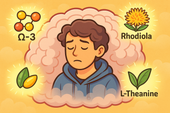
Brain Fog and Body Dysmorphic Disorder: Can Nootropic Supplements Help?
Brain fog often accompanies Body Dysmorphic Disorder, clouding focus and deepening emotional fatigue. Nootropic supplements like L-theanine, Rhodiola, and CoQ10 can help restore mental clarity, balance neurotransmitters, and bring calm energy back to the mind 🌿🧠.
-

How Stress Hormones Like Cortisol May Worsen Body Dysmorphic Disorder
Chronic stress floods the brain with cortisol — the hormone that keeps you on high alert. In Body Dysmorphic Disorder, this chemical overdrive fuels anxiety, distorts self-image, and traps the body in survival mode. Calming cortisol helps restore both peace and perspective 🌿🧠.
-

The Role of Neurotransmitters in BDD—and How Supplements May Help
Neurotransmitters like serotonin, dopamine, glutamate, and GABA shape how people with Body Dysmorphic Disorder perceive themselves. When these brain messengers fall out of balance, perception distorts — but targeted supplements can help restore calm, focus, and emotional regulation 🧠🌿.
-

What Is Body Dysmorphic Disorder? A Deeper Look at the Mind-Body Connection
Body Dysmorphic Disorder (BDD) isn’t just about appearance — it’s about perception. When brain chemistry, trauma, and stress distort self-image, the mind begins to see flaws that aren’t truly there. Healing starts by calming the nervous system and reconnecting mind and body 🪞🧠.
-
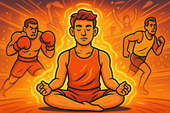
Keeping Calm in Competitive Sports: How to Train Your Mind, Body, and Chemistry for Peak Performance
Competitive pressure can overwhelm even the strongest athletes — but calm is trainable. By combining supplements like magnesium, L-theanine, and adaptogens with breathwork and mindset training, you can stay focused, balanced, and in control under any level of stress 🧠🏅.
-
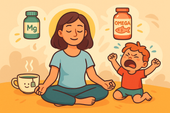
Supplements for Parents Facing Toddler Tantrums: Staying Calm When Little Emotions Run Wild
Toddler tantrums can drain even the most loving parent — but your calm is powerful. With the right supplements like magnesium, L-theanine, and ashwagandha supporting your nervous system, you can stay patient, grounded, and kind, even when emotions run high 🧸🌿.
-

Workplace Stress and Anger Management Support
Workplace stress can quickly turn into frustration — but calm is a skill you can train. By combining supplements like magnesium, L-theanine, and adaptogens with breathwork and mindset tools, you can stay focused, patient, and emotionally grounded no matter how intense the office gets 💼🌿.
-

How to Stay Patient With Family During Stressful Holidays
Holiday gatherings can stir up old stress and test your patience — but calm is possible. With nervous system support from magnesium, L-theanine, and adaptogens, plus mindful breathing and clear boundaries, you can stay centered, kind, and grounded even when family chaos unfolds 🎄💞.
-

Supplements to Keep Calm During Traffic Jams
Getting stuck in traffic doesn’t have to ruin your mood. With calming supplements like magnesium, L-theanine, and ashwagandha, you can train your body to stay relaxed and focused behind the wheel — turning gridlock into a moment of grounded patience 🚗🌿.
-
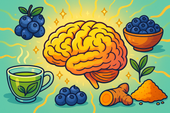
The Role of Antioxidants in Healing Brain Stress from Dissociation
Antioxidants protect the brain from the oxidative stress caused by trauma and dissociation. By neutralizing free radicals and supporting mitochondrial recovery, they help restore clarity, focus, and emotional balance — allowing the mind to heal at the cellular level 🌿🧠.
-
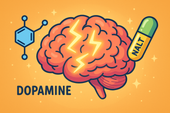
N-Acetyl L-Tyrosine (NALT) for Supporting Mental Clarity
N-Acetyl L-Tyrosine (NALT) fuels dopamine production — the neurotransmitter of focus and motivation. By supporting brain chemistry during stress, NALT helps restore mental clarity, energy, and alertness, making it easier to think clearly and feel present again ⚡🧠.
-

How Ginseng May Improve Focus and Energy in Dissociation
Ginseng helps combat the mental fatigue and fog that often come with dissociation. By supporting mitochondrial energy, balancing neurotransmitters, and regulating cortisol, it gently restores focus, motivation, and emotional presence — helping the mind reconnect with clarity and strength 🌿⚡.
-
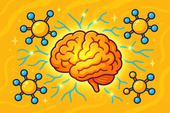
Phosphatidylserine and Dissociation: Supporting Cognitive Function
Phosphatidylserine helps calm the stress response by balancing cortisol, the body’s primary stress hormone. By lowering cortisol spikes, it protects memory, focus, and emotional stability — restoring clarity and mental presence for those struggling with dissociation 🧠🌿.
-
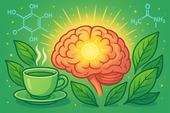
Can Green Tea Extract Help with Dissociative Brain Fog?
Green tea extract may help lift dissociative brain fog by supporting neurotransmitter balance, reducing inflammation, and enhancing energy at the cellular level. With its key compounds EGCG and L-theanine, it promotes calm focus, clarity, and emotional presence — helping you feel more alert and grounded 🍵🧠.
-
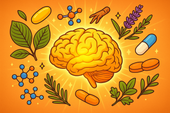
Building a Natural Supplement Stack for Dissociation Support
Building a supplement stack for dissociation means nourishing the brain and body back into communication. By supporting neurotransmitters, gut health, and energy balance through nutrients like magnesium, omega-3s, curcumin, and probiotics, you can help restore clarity, calm, and connection — one layer at a time 🌿🧠.
-

Chamomile and Lavender for Dissociative Anxiety Relief
Chamomile and lavender work together to calm dissociative anxiety by soothing the nervous system and restoring emotional safety. Their natural compounds balance cortisol, enhance GABA activity, and activate the vagus nerve — helping you feel grounded, connected, and at peace again 🌿💜.
-
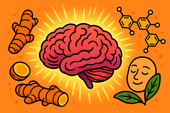
Curcumin for Inflammation and Mental Clarity in Dissociation
Curcumin, the golden compound in turmeric, does more than fight inflammation — it helps clear the mental fog often tied to dissociation. By calming neuroinflammation, balancing neurotransmitters, and supporting mitochondrial energy, curcumin can restore mental clarity, focus, and emotional presence 🌿🧠.
-
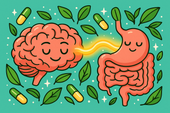
Probiotics and Dissociation: Exploring the Gut–Brain Axis
The gut–brain axis plays a vital role in emotional awareness and presence. When the microbiome is balanced, it supports serotonin production, vagus nerve activity, and calm focus. Probiotics help repair this connection — restoring safety, clarity, and the feeling of truly being in your body again 🌿🧠.
-
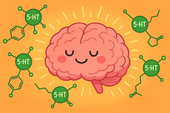
5-HTP for Dissociation: Supporting Serotonin and Emotional Stability
5-HTP helps bridge the gap between emotional numbness and stability by supporting serotonin production — the neurotransmitter that shapes mood, sleep, and sensory awareness. For people experiencing dissociation, 5-HTP may gently restore connection, presence, and emotional balance from the inside out 🌿🧠.
-
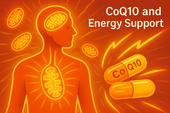
CoQ10 and Energy Support for People with Dissociation
Chronic dissociation often leaves the body running on empty — tired, foggy, and disconnected. CoQ10 helps recharge that system at the cellular level by restoring mitochondrial energy, reducing oxidative stress, and supporting the brain’s capacity to stay present. It’s energy medicine for both body and mind ⚡🧠.

















































